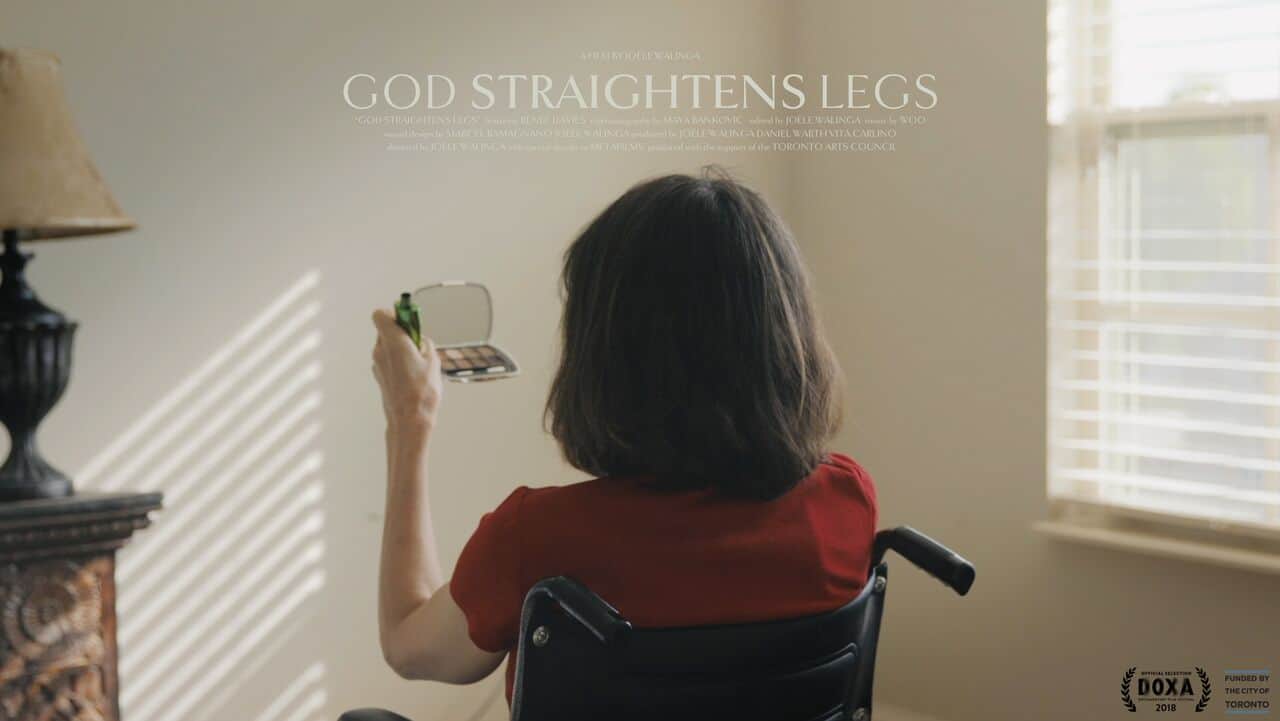In Joële Walinga‘s latest film, God Straightens Legs, the Toronto filmmaker carefully and quietly documents her mother’s battle with cancer. Set mainly within the confines of her mother’s suburban bedroom, Walinga marks the passage of time, the governing power of spiritual belief, and the forging of a new understanding as she watches her mother eschew typical cancer treatments in favour of reliance on a higher power.
We asked her about the film this week.
SDTC: Did you suspect, when you heard of your mother’s diagnosis, that she would opt to forego the usual cancer treatment? How did you feel about her decision when you heard?
JW: By the time I’d heard about the diagnosis, I was also being told about her decision. She’d already made her mind up, and she’d kept it all pretty private until more recently. I think, for her, she knew what she was comfortable with and what she wanted to do, and, in addition to navigating the trauma of hearing she had cancer, she didn’t want to have to deal with people making it about themselves and guilting her for not going with a more conventional approach, as if her decision had anything to do with them. So she kept it in for a few years, and I totally understand that.
My mom and I were always close, but making this film together brought us a little closer, if only because we had a project to share. It also brought into our lives the amazing Maya Bankovic, the film’s cinematographer, who became like a part of the family during and after production, and I know both my mom and I feel very lucky to know her. But practically, we’re the same. We live in different cities, so we text back and forth daily and send each other pictures of the elaborate meals we made ourselves or images of cats or raccoons or quotes that moved us, stuff like that. It’s been our practice for at least the past six years, and it is still going strong even after making the film.
What did you learn about your mother through the making of this film? What did you learn about yourself?
My mum is the same as she ever was, only a little stronger maybe as a result of her recent years of resilience with cancer. Often in the film, I create scenarios that I think would be nice for her–things that are powerful to me; miracles, so to speak–and she lets me, but that’s it. She doesn’t seem to be as affected by them as I am. And I guess that’s the biggest thing I learned: that the film was not just something I was making. The topic was not just something I was exploring. I really *needed* it. It was my therapy, my way of working through my feelings about it all, and she was letting me have it.
What do you hope audiences take away from this film?
The film is designed to force audiences to make decisions and then doubt themselves, doubt their perspective, doubt their certainty, find it again, etc. The film puts viewers into my mom’s home, in her space and her world, and what audiences think when they leave that space, by design, has everything to do with their own optimism or pessimism.


 Follow Us On Instagram
Follow Us On Instagram

 Drag shows, op
Drag shows, op
 This Thursd
This Thursd